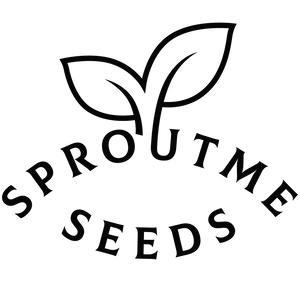Eggplant
Eggplant, also known as aubergine, is a versatile and delicious vegetable commonly used in cuisines around the world. Growing your own eggplant ensures access to fresh, flavorful produce that can be enjoyed in a variety of dishes, from ratatouille to eggplant parmesan.
Preparing for Growing:
- Selecting a planting location: Choose a sunny location with well-drained soil and protection from strong winds.
- Soil preparation: Amend soil with compost or aged manure to improve fertility and drainage.
- Purchasing or preparing containers/pots: If space is limited or soil quality is poor, consider growing eggplant in containers filled with a well-draining potting mix.
Starting from Seeds Indoors:
- Seed preparation: Soak seeds in warm water for 24 hours before planting to improve germination rates.
- Choosing suitable pots/containers: Use seed trays or small pots filled with seed-starting mix.
- Sowing and caring for seeds indoors: Sow seeds ¼ inch deep and keep soil consistently moist. Provide warmth and light for optimal germination.
- Transplanting to larger containers if necessary: Once seedlings have 3-4 true leaves, transplant them into larger containers to prevent root crowding.
Starting from Seeds Outdoors:
- Soil preparation: Prepare a fine seedbed by removing weeds and debris.
- Selecting appropriate timing and method for outdoor sowing: Wait until after the last frost date to sow seeds directly into the garden.
- Caring for seeds outdoors: Keep soil consistently moist until seeds germinate, which typically takes 7-14 days.
Growing in Containers/Pots:
- Selecting suitable plants for containers: Choose compact, bushy varieties suitable for container growing.
- Container and soil preparation: Ensure containers have drainage holes and fill them with a well-draining potting mix.
- Sowing or transplanting plants into containers: Plant seeds or transplant seedlings into containers, spacing them according to package instructions.
- Caring for container plants: Water regularly to keep soil evenly moist and fertilize every 2-3 weeks with a balanced fertilizer.
Transplanting to Garden:
- Soil and planting site preparation: Prepare garden soil by incorporating compost and ensuring proper drainage.
- Correct timing and method for transplanting: Transplant seedlings when they have 4-6 true leaves, spacing them 18-24 inches apart in rows spaced 24-36 inches apart.
- Post-transplant care: Provide support for tall varieties with stakes or cages. Mulch around plants to conserve moisture and suppress weeds.
Plant Care:
- Watering: Eggplants require consistent moisture, so water deeply once or twice a week, depending on weather conditions.
- Fertilizing: Apply a balanced fertilizer or compost tea every 4-6 weeks to promote healthy growth and fruit development.
- Weeding: Keep the area around eggplant plants free of weeds to reduce competition for nutrients and water.
- Pest and disease management: Monitor for pests such as flea beetles and aphids, and diseases like verticillium wilt and bacterial wilt. Use row covers, organic insecticides, or fungicides as needed.
Harvesting:
- Determining when plants are ready for harvest: Harvest eggplants when they reach mature size and have a glossy appearance. For most varieties, this is typically 2-3 months after planting.
- Harvesting and storage guidelines: Cut eggplants from the stem using a sharp knife or pruning shears. Store harvested eggplants in the refrigerator for up to a week.
When to Start from Seeds by USDA Plant Hardiness Zones:
- USDA Zones 4-7: Start seeds indoors 8-10 weeks before the last frost date for transplanting outdoors after the danger of frost has passed.
- USDA Zones 8-10: Start seeds indoors 6-8 weeks before the last frost date or sow seeds directly outdoors after the danger of frost has passed.
Fast Facts:
- Planting depth: ¼ inch
- Seed spacing: 1 inch
- Plant spacing: 18-24 inches
- Number of seeds per pot/container: 2-3 seeds per pot
- Water preferences: Consistently moist soil
- Sun preferences: Full sun
- Soil type and other important factors: Well-draining loamy soil with a pH of 5.5-6.5
- Companion Planting: Eggplants grow well with herbs like basil and marigolds, which can help repel pests.
- Temperature Preference: Warm-season crop, prefers temperatures between 70-85°F.
- Days to Germination: 7-14 days
- Days to Harvest: 60-80 days after transplanting.







